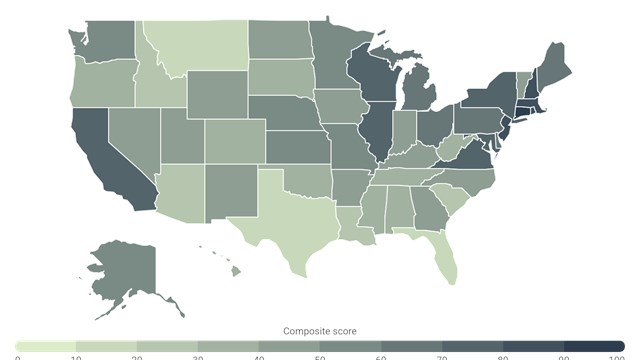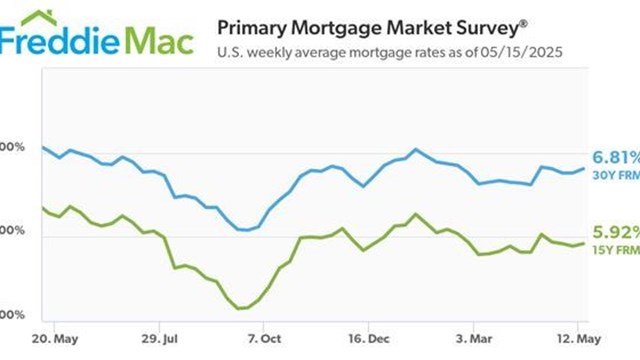These days, so much of what we do and own is defined—often redefined—by technology, including our assets. Cryptocurrency is a prime example. While not really ‘money’ in the traditional sense of dollars or pounds or euros, and in no way similar to equity shares we call stock, crypto is becoming increasingly popular as an asset—and among certain segments of the investing public, it’s becoming involved in the purchase and sale of property, including co-op apartments. Use of cryptocurrencies raises a lot of questions for co-op boards, however, among them how to view and value Bitcoin, Ethereum, and their ilk as assets in the context of assessing a prospective buyer.
It’s Already Happening
Depending who you ask in the world of finance, cryptocurrency is either the future or a passing fad. Either way, even still in its infancy, ‘crypto’ is attracting more and more investors—especially among younger millennials and gen-z internet natives—and its applications are expanding. That expansion even includes some inroads into the world of real estate. While cryptocurrency cannot be used directly to purchase real estate—it must be converted to cash or equivalents first—it is quickly becoming an instrument in the purchase process.
Back in 2018, Curbed reported on what were believed to be the first real estate transactions in NYC to be made using decentralized digital currency. The deals were for two condo units at 389 East 89th Street in Manhattan: one 624-square-foot studio with an asking price of $875,000; the second, a 989-square-foot one-bed/one-bath that entered contract at $1.485 million. The transactions reportedly employed a service called BitPay, which converts Bitcoin to dollars. (With lower stakes and fewer legal hurdles, the rental market has been quicker to embrace—or at least consider—crypto, with a handful of brokerages promoting the fact that they accept digital currencies as payment for an array of fees and services.)
What Is Crypto?
The first form of payment that enabled commerce in societies across the globe was barter. In other words, how many goats do you want for your wheat? While this method worked fine for thousands of years, goats are not always the optimal way to pay for things. That’s when money came along. Early forms of currency were actually made of precious metals, like gold and silver. While much easier to carry around than a bunch of goats, the bags got a little heavy. Eventually, actual gold coins were replaced with paper money that was ‘backed’ by precious metal, be it gold or British Pounds Sterling. At some point, paper money itself was accepted as value for specific amounts; its worth was assumed, and users exhibited confidence in its value and reliability. Cryptocurrency is that—but on steroids, and in cyberspace.
“At its most basic level, cryptocurrency like Bitcoin or Ethereum is a digitally based currency,” says Steven Ebert, a partner with Manhattan-based law firm Cassin & Cassin. “It is accounted for through a decentralized computer network, a basic ledger called a blockchain. The blockchain tracks the tokens—the units of cryptocurrency—and their ownership and transactions in an anonymous way.”
So what does this have to do with co-ops? Well, with more investors adding crypto to their portfolios, and with the value of some cryptocurrencies going stratospheric (and in fairness, also occasionally plummeting just as spectacularly), the question for boards considering a purchase application package that includes crypto in the prospective buyer’s asset column is what faith and trust they can put in the value of this ‘currency’? Is it more like stock, or more like cash? Money has a fixed value. In real terms—with the exception of monetary units in foreign currencies—that value is constant and concrete. A dollar is a dollar. Cryptocurrency’s valuation, on the other hand, changes constantly. So how can and should co-op boards look at cryptocurrency as part of a potential buyer’s overall financial position?
Valuing Crypto as an Asset
“When valuing cryptocurrency as part of someone’s financial application for purchase of co-op shares, keep in mind that its value fluctuates widely, more so than stocks,” says Ebert. “You’re also looking at an asset that’s not actually legal tender in the United States; not everyone will accept it as a currency for trade. If you show up at CVS with cash, you can buy whatever you like, but if you show up with Bitcoin, you can’t. It’s not fungible.”
Board members reviewing the financial packages of purchase applicants must be aware of the volatility of cryptocurrency, while still understanding its intrinsic value as an investment—the same way they understand stocks or bonds. They must also understand its limitations. For many reasons—both legal and financial, including the aforementioned volatility—crypto shouldn’t be considered for, say, payment of a maintenance escrow.
There are also tax questions involved with the redemption—the converting to cash—of cryptocurrency that must be considered as well when evaluating how it fits into a prospective cooperator’s financial picture.
“It’s not the same as cash in a savings account,” says Ebert. “Crypto redemption is like a stock sale. There is a taxable event. Some call crypto a security, some a currency. That’s part of the debate. The process is still in its infancy relative to regulation, so we are in an in-between stage.” As things stand now, if one shows a certain amount of crypto on a financial statement, and then has to redeem it, there is a potential tax liability resulting from that redemption. Cash in a bank account isn’t like that. The question (among others) is whether it is a capital asset, and therefore subject to a gains tax. And what is the repercussion of that tax event on the holder’s financial position?
Proof of Value
Another question is how to prove the value of the asset cryptocurrency represents. The blockchain was developed to ensure authenticity and provenance while remaining anonymous and decentralized, explains Ebert. “Effectively, they have keys and passwords to access accounts—it’s sort of a Swiss bank account for the digital age. Co-op boards would need to ask for the key and password, and see ‘physical’ proof of its existence,” says Ebert. In other words, holders of cryptocurrency accounts would literally have to go online and show their ownership and holdings in real time.
Tax Implications
“The sale of crypto currency is a taxable event,” says CPA John Jilleba, a partner with Jilleba and Libock, an accounting firm located in Westwood, New Jersey. “Section 1001 of the IRS code says when you buy or sell property, there is a determination of gain or loss. If you sell cryptocurrency for a loss, there’s no tax, but there is a gain if you sell it at a profit. That gain is subject to tax, either a short-term or long-term capital gain, depending on how long you have held the instrument.”
Furthermore, Jilleba explains, “There’s no effect on the tax liability relative to the contract or closing dates.” The value of a buyer’s crypto assets may be pegged on the contract date, but the gain or loss is realized on the date the cryptocurrency is converted to dollars and the sale actually occurs. “You are liquidating crypto to buy real estate. You use after-tax cash for the purchase, so it establishes the basis. The tax is calculated based on date of sale, not date of contract. It’s in no way like a 1031 exchange—and it can’t ever be.”
Another question for co-op corporations and condominium associations is whether they can accept crypto coin for payment of maintenance or common charges, or whether they can choose to invest reserve funds in cryptocurrency.
Ebert states categorically that a co-op or condo cannot accept payment of co-op maintenance fees or condominium common charges in cryptocurrency. “It’s too problematic,” he says. As for other uses, like holding cryptocurrency in reserve funds, Ebert explains in more depth:
“Section 216 of the IRS code deals with a qualified housing co-op,” he says. “It has a series of limits on what instruments can be used to hold reserve funds. Approved instruments are generally bank-type assets and qualifying stock from the National Co-op Bank. That’s it. Condos,” he notes, “are taxed differently, and might have a little more flexibility. The question for them is what do their governing documents permit? Generally, condominiums have restrictions similar to co-ops, so it’s unlikely they can hold cryptocurrency as an investment.
“The purpose of a condominium association or co-op corporation is to organize, manage, and run the community,” continues Ebert. “If the community doesn’t care about certain tax sections and rules and regulations that apply to it, the community can allow investing reserve funds in crypto investments. They might, or would, lose their rights under section 216 relative to certain tax-deductible expenses. This was the case some years ago under the 80/20 commercial income rule. Some buildings had so much potential to make real income from commercial space in the building that they walked away from the tax benefits that limited that commercial income. That law was changed some 15 years ago. The bigger question for a co-op or condo is whether they have the support of owners, and are willing to lose some benefits under the tax code.”
Ebert also points out that it might be more difficult for a co-op to make that choice than a condo. “By default, co-ops have more rules against them than condos. They want to qualify under section 216. Governing documents are the big control, and then there’s the tax code. They must also consider what risk there might be to board members. Is investing in crypto sound business judgment? Board members run the risk of going from managing the affairs of the community to being investment counselors for the community. This could also affect reserve requirements, and create issues with mortgagees holding the underlying permanent mortgage in the case of a co-op.”
When considering cryptocurrency as an asset for a prospective buyer, co-op board members need not accept its valuation and ease of use without questions—but nor should they exclude it from consideration entirely. Prudent boards should make sure they are well informed on how cryptocurrency works, its pitfalls, and its potential benefits.










Comments
Leave a Comment